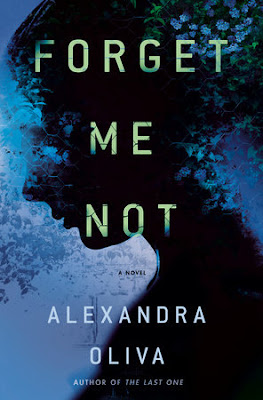Alma Katsu
 Alma Katsu’s books have received starred reviews from Publishers Weekly, Booklist, and Library Journal, been featured in the New York Times and Washington Post, been nominated and won multiple prestigious awards, and appeared on numerous Best Books lists.
Alma Katsu’s books have received starred reviews from Publishers Weekly, Booklist, and Library Journal, been featured in the New York Times and Washington Post, been nominated and won multiple prestigious awards, and appeared on numerous Best Books lists.
Red Widow is her first spy novel, the logical marriage of her love of storytelling with her 30+ year career in intelligence. As an intelligence officer, Katsu worked at several federal agencies as a senior analyst where she advised policymakers and military commanders on issues of national security. The last third of her government career was spent in emerging technologies and technology forecasting. She was also a senior technology policy analyst for the RAND Corporation and continues as an independent consultant and technology futurist, advising clients in government and private industry.
Katsu also writes novels that combine historical fiction with supernatural and horror elements. The Hunger (2018), a reimagining of the story of the Donner Party, was named one of NPR’s 100 favorite horror stories, was on numerous Best Books of the Year lists, and continues to be honored as a new classic in horror. Her first book, The Taker (2011), was named one of the top ten debut novels of 2011 by Booklist. Katsu has relocated from the Washington, DC area to the mountains of West Virginia, where she lives with her musician husband Bruce and their two dogs, Nick and Ash.
My Q&A with the author:
How much work does your title do to take readers into the story?Visit Alma Katsu's website.
This book is a huge departure, going from fantasy and historical fiction to a spy thriller but also because this is the first one that is not “The [Noun]”. Old habits die hard: the working title had been The Widow but my publisher had put out Fiona Barton’s bestseller by the same title not too long previously. We then kicked around many titles, none of which seemed to fit. The publisher came up with Red Widow and immediately we knew it was the one. After you’ve read it, you’ll see that it applies in two ways. Plus, if it puts people in mind of Red Sparrow, I won’t complain.
What's in a name?
I usually put a lot of effort into character’s names, trying to come up with ones that give insight into the character’s personalities. For Red Widow, I went in the opposite direction. People who do clandestine work are not supposed to stand out. I wanted names that would blend in. Case officers are supposed to be forgettable, even, and while Lyndsey would use a false name during actual operations, I wanted to show that these extraordinary people who do extraordinary work often appear, on the surface, to be quite unassuming.
How surprised would your teenage reader self be by your new novel?
Very! I did not intend to go into intelligence work when I was young. I wanted to be a writer. That was my intention. And I would not have been able to write this book without having spent a lot of time in the intelligence business.
Do you find it harder to write beginnings or endings? Which do you change more?
Beginnings are easy for me, endings hard. When I start, I usually have an idea where the ending needs to go but don’t know the specifics. Many times, the last third of a book changes quite a bit after the first or second draft. The real work for me always seems to be in revision.
Do you see much of yourself in your characters? Do they have any connection to your personality, or are they a world apart?
In Red Widow, there’s a bit of me in both Lyndsey and Theresa Warner. There has to be: my view of the intelligence business, and particularly what it’s like for a woman, is drawn from my personal experience. You see a lot in thirty years; plus, as an analyst, assessing and drawing conclusions is my business. I’ve come to a lot of conclusions about what it means to spend a lifetime in the field, whether it’s a good bargain, and used it in writing this book.
What non-literary inspirations have influenced your writing?
For previous books such as The Taker or The Deep, there were movies that influenced my vision. For Red Widow, I draw on any of the more famous spy movies, no James Bond or Jason Bourne. The FX TV series The Americans was an influence in terms of the smart tone, and the fact that the female agent was extremely tough and extremely professional, not the way women are too often portrayed in spy films and TV.
The Page 69 Test: The Taker.
My Book, The Movie: The Hunger.
The Page 69 Test: The Hunger.
The Page 69 Test: The Deep.
The Page 69 Test: Red Widow.
--Marshal Zeringue




























